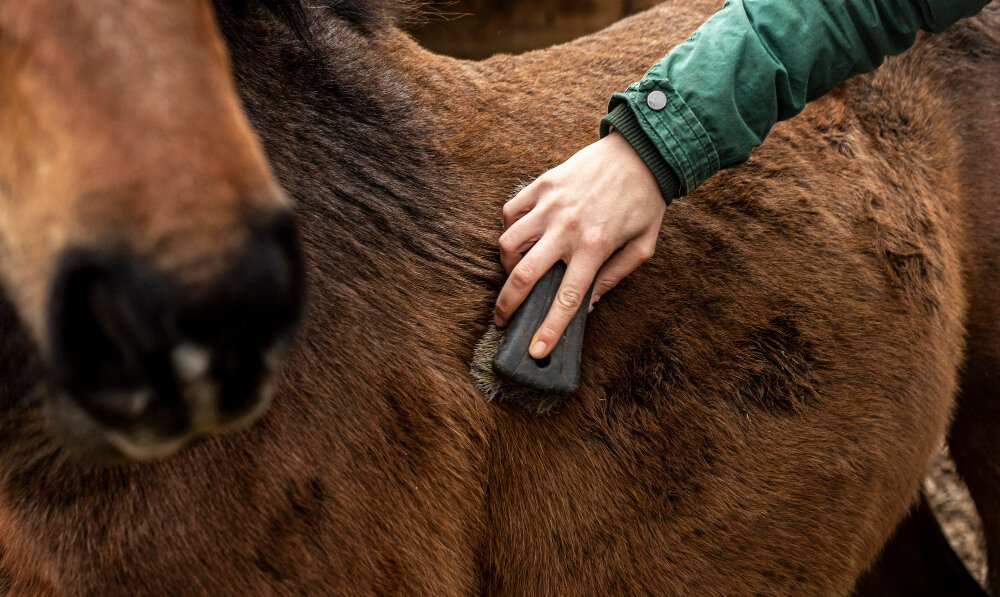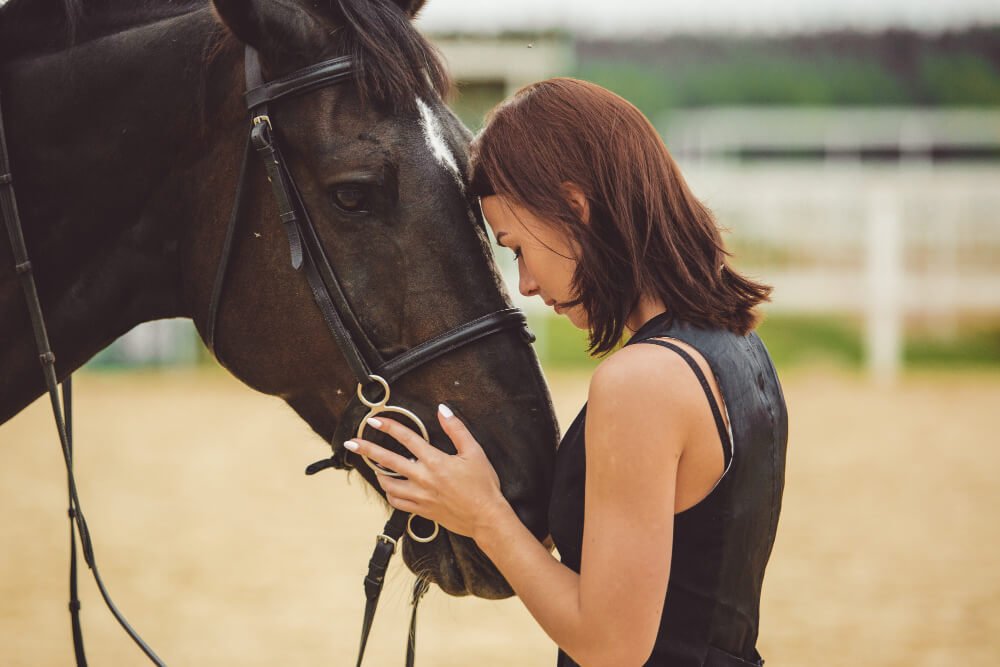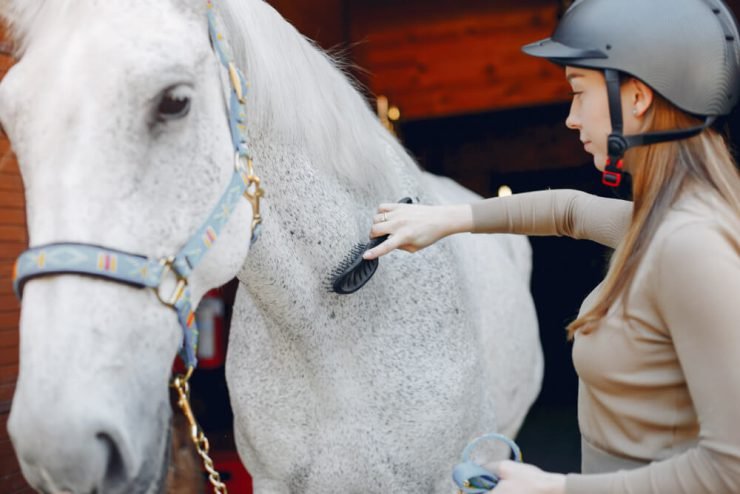A horse requires a lot of discipline to care for, so it’s essential to provide it with a roomy, clean area to rest, follow a diet according to its breed and size, keep up a regular exercise schedule, and, of course, take care of its skin and fur.
If you look after or ride horses, you know that a horse’s skin is a good indicator of its health. You’ll also be aware that giving your horse proper skin care may ensure its well-being. In this article, we offer some advice on how to maintain good skin on your horse.
Importance of maintaining healthy skin and coat

The skin, which can range in size from five to ten square meters and is the largest organ in horses, is also the first to be exposed to external aggressions that may change the skin’s natural equilibrium. Epidermis and, as a result, have an impact on the health and well-being of the horse.
Horses sweat through their skin as protective armor and to control their body temperature while working out. Therefore, you should keep your horse’s skin and coat care routine if you want him to experience complete well-being.
Tips for caring for the skin and coat of an equine

Problems with the epidermis are typically a sign of excess or poor hygiene in horses with no internal diseases that manifest as skin symptoms. In either situation, a veterinarian’s guidance must be sought to take the proper precautions.
In addition to impacting the horse’s appearance, these skin changes can also impair the animal’s mobility or cause other serious health issues. Hence the need to continue a regimen of treatments that support healthy skin health.
Some fundamental principles must be considered when caring for a horse to prevent skin issues and maintain good skin health.
Maintain a proper grooming and brushing routine

Pathogen development is prevented by proper grooming, which also includes daily brushing for healthy coat maintenance.
A horse’s skin irritation may result from bacteria that thrive in sweat and dirt. It is crucial to keep all of the equipment, including blankets, blankets, and bandages, clean to reduce the presence of pathogenic agents.
Another critical factor is to follow a regular hygiene routine. Fortunately, horses adore water so the washing process can create a unique bonding experience for the caretaker and the horse.
Following an exercise session, it is advised to give the animal a thorough cleaning with clean, hot water to help the animal relax its muscles and prevent the growth of germs that could harm the horse’s epidermis.
Additionally, it is advised to thoroughly rinse the horse’s skin with clean water after frequent cleaning operations to remove all residues of the particular soaps and shampoos used. This lowers the chance of allergies.
But keep in mind that excess of anything is wrong. As a result, washing your horse too regularly carries several hazards, including losing fat from the skin, which increases their susceptibility to illnesses.
To prevent any allergenic intolerance or skin irritation of the horse, it’s also essential to use lightly prepared products that respect the natural balance of the horse’s skin and coat.
Adapt the environmental conditions to the stable

Particularly in the winter, when horses are more likely to spend more time in the stables, humidity and heat are ideal for the growth of fungi.
Each horse has to have their riding and grooming supplies, which must be cleaned and sanitized frequently to prevent the growth of fungi and their spread.
Avoid contact with allergens and any insect bites.

On the other hand, summer eczema, also known as summer equine dermatitis, is a seasonal allergy that typically impacts all horse breeds to varying degrees.
Its root causes are numerous, including skin irritants and insect bites, which act as a vector for the viruses and bacteria that cause eczema. This disease results in severe itching, which prompts the animal to scratch or bite the affected area. Hair loss, scaling, and skin lesions develop, increasing your horse’s health risk.
Avoid being bitten by mosquitoes and allergens as a preventative measure. It is advised to keep horses in the stable at specific times during the first warm days of spring and to use bug repellents or other preventive measures.





Add comment